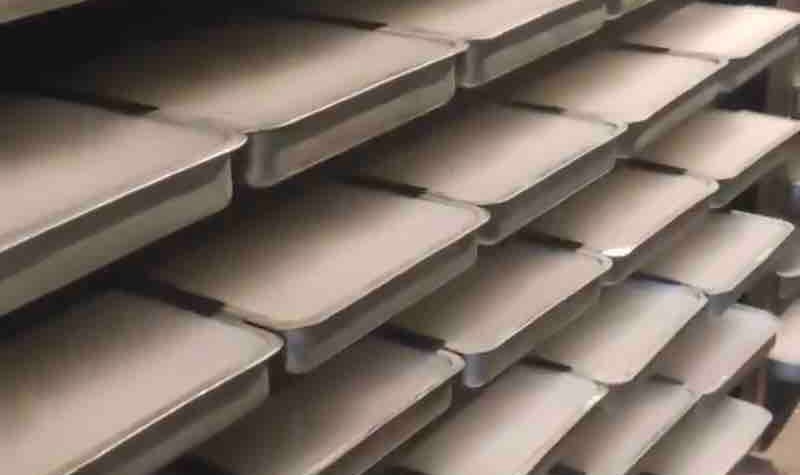
Paraffin 54-56 is one of the most widely used paraffin wax grades in global manufacturing. Its melting point range of 54°C to 56°C (129–133°F) makes it ideal for applications that require controlled melting behavior, excellent stability, and clean-burning performance. Because of its balanced hardness and smooth texture, industries such as candles, cosmetics, pharmaceuticals, and packaging consistently rely on this grade for predictable and high-quality results.
Paraffin wax itself is a fully refined mixture of saturated hydrocarbons, typically derived from petroleum refining. However, not all paraffin grades behave the same. What separates Paraffin 54-56 from other waxes is its very specific melting point range. This thermal window determines how the wax melts, cools, holds its shape, releases fragrance, binds additives, and interacts with molds or containers. Consequently, manufacturers choose Paraffin 54-56 when they want a wax that melts efficiently but still maintains enough hardness to produce durable finished products.
Understanding the Melting Point of Paraffin 54-56
The melting point is the core property that defines how a paraffin wax will perform. Paraffin 54-56 begins melting around 54°C and becomes fully liquid by 56°C. This range is ideal because it allows smooth and uniform liquefaction, easy pouring into molds and containers, consistent solidification without cracks, good structural integrity in finished products, and excellent balance between softness and hardness.
Unlike softer waxes that melt too easily or harder waxes that require very high temperatures, Paraffin 54-56 sits at a perfect midpoint. As a result, it works in a wide variety of climate conditions, from warm to moderately cool environments.
Advantages of Using Paraffin wax 54-56
Paraffin 54-56 is preferred because it provides several functional benefits.
Clean and Consistent Burning
This grade burns evenly with minimal smoke or soot, making it ideal for candles used indoors or in decorative settings.Excellent Fragrance Retention
Because of its balanced melting point, the wax holds fragrance oils well and releases scent evenly throughout the burn.Smooth Surface Finish
When cooled properly, Paraffin 54-56 produces a glossy, attractive finish that enhances the appearance of candles and cosmetic products.Good Mold Release
Manufacturers who use molds appreciate this grade because it solidifies without sticking or deforming.Stable Performance
Even in large batches, the wax maintains a reliable melting pattern, which is essential for industrial production.
These advantages make Paraffin 54-56 a versatile material for both home-based creators and large-scale manufacturers.
Applications of Paraffin wax 54-56 in Different Industries
Although commonly associated with candle-making, this grade of paraffin plays an important role in many other industries.
1. Candle Manufacturing
Paraffin 54-56 is one of the most popular candle waxes globally. Its moderate hardness helps candles maintain shape, while its melting point ensures slow, steady burning. It is suitable for container candles, molded candles, decorative candles, scented candles, and pillar candles. The wax’s strong scent-throw capability makes it particularly valuable for fragrance-rich candle lines.
2. Cosmetics Industry
In personal care products, Paraffin 54-56 contributes smooth texture, moisturizing properties, and structural firmness. It is used in creams, ointments, lip balms, body lotions, and hair-removal wax formulations. Because it melts at skin-safe temperatures, it is comfortable and reliable for topical applications.
3. Pharmaceuticals
In pharmaceuticals, Paraffin 54-56 is used as a binding and stabilizing agent. It provides consistency in medicated creams, ointments, therapeutic balms, and controlled-release systems. Its purity and low reactivity make it suitable for sensitive formulations.
4. Food and Packaging Industry
In food-contact applications, the wax is used for cheese coating, fruit and vegetable preservation, moisture-resistant paper, and corrugated box coating. Its melting point helps create a protective barrier that resists humidity and oxidation.
5. Industrial Uses
Industries also use Paraffin 54-56 for rubber processing, waterproofing materials, heat-transfer control, polishes, lubricants, and anti-rust coatings. Because it melts cleanly and cools quickly, it integrates easily into industrial manufacturing processes.
How to Make Candles With this grade
Below is a complete step-by-step guide to producing candles using Paraffin 54-56.
1. Measure the Wax Accurately
Use a precise scale to weigh the required wax amount. Accurate measurement ensures proper fragrance loading and consistent candle structure.
2. Melt the Wax Slowly
Place the wax in a melting pot or a double boiler. Heat gently on low to medium heat. Avoid overheating and do not allow the wax to smoke. Stir occasionally to maintain even temperature. The ideal melting range is 65–85°C (150–185°F), depending on additives and the equipment used.
3. Add Fragrance and Color
Once the wax is fully melted, you may add fragrance oils, essential oils, liquid dyes, or solid dye blocks. Gently mix the additives. Follow recommended fragrance loads, usually between 3 and 8 percent.
4. Prepare the Wick
While the wax is melting, prepare your containers or molds. Secure the wick using adhesive tabs or glue and center it using a wick holder or a pencil. Correct wick placement is crucial for an even burn.
5. Pour the Melted Wax
Allow the wax to cool slightly to the recommended pouring temperature, usually between 70 and 82°C (160–180°F). Pour gently into the mold or container, avoid air bubbles, and leave space for shrinkage. Tap the sides lightly if needed to release trapped air.
6. Allow the Candle to Cool
Cooling time varies with candle size. Allow the candle to rest undisturbed until it fully hardens. If sinkholes appear, perform a small top-off pour to achieve a smooth, level surface.
7. Trim the Wick and Finish the Candle
Trim the wick to 6–12 millimeters once the candle is completely solid. Add labels, packaging, or decorations as desired.
